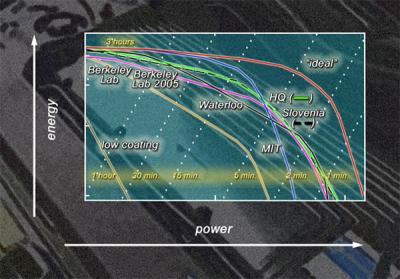
Overview:
Efficient, safe, and reliable energy storage remains a key challenge to the clean energy sector, a challenge that must be addressed before wide implementation of renewable energy is possible. Current work at UC Berkeley is addressing the development of new energy storage and conversion technologies, while simultaneously addressing the need to understand the implications of the new materials being used. Additionally new metrics and models to assess the health impacts of various energy implementation strategies are being pursued. The results of these assessments will help identify the most promising strategies for generation and storage implementation.
Fuel Cells (Arnold): IGERT fellows will develop these new technologies within the context of looking for safer and more sustainable technologies that could be rapidly introduced into society.
Assessing the Toxicity of Nano-materials in Clean Energy Applications (Resh, Vulpe): The SAGE IGERT will enable an integrated assessment of the toxicity of new metal-organic frameworks and allow for informed decisions between possible frameworks and ligands.
Health Impact Metrics (McKone, Schwarzman): To address both the global and the local/occupational scale of environmental impacts from energy technology, SAGE IGERT fellows will explore, evaluate, and employ metrics that compare the environmental health impacts of renewable energy technologies based on both cumulative impacts and the asymmetry of these impacts among different populations, ecosystems, geographic scales, and temporal scales.
Campus Connection:
http://newscenter.lbl.gov/news-releases/2012/05/29/calcharge/
